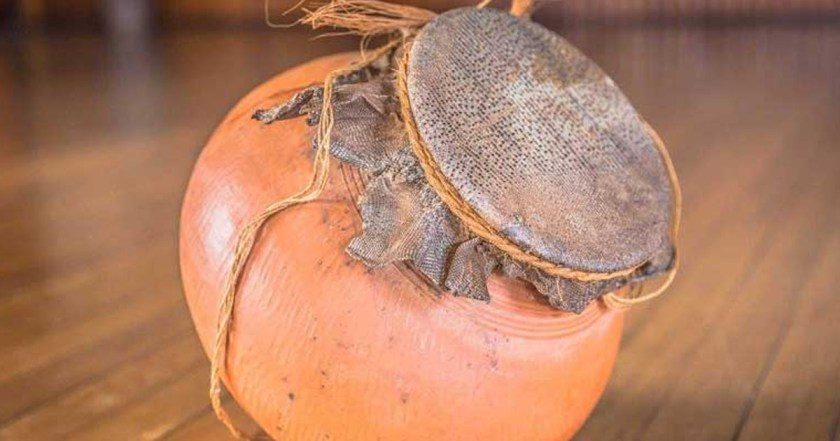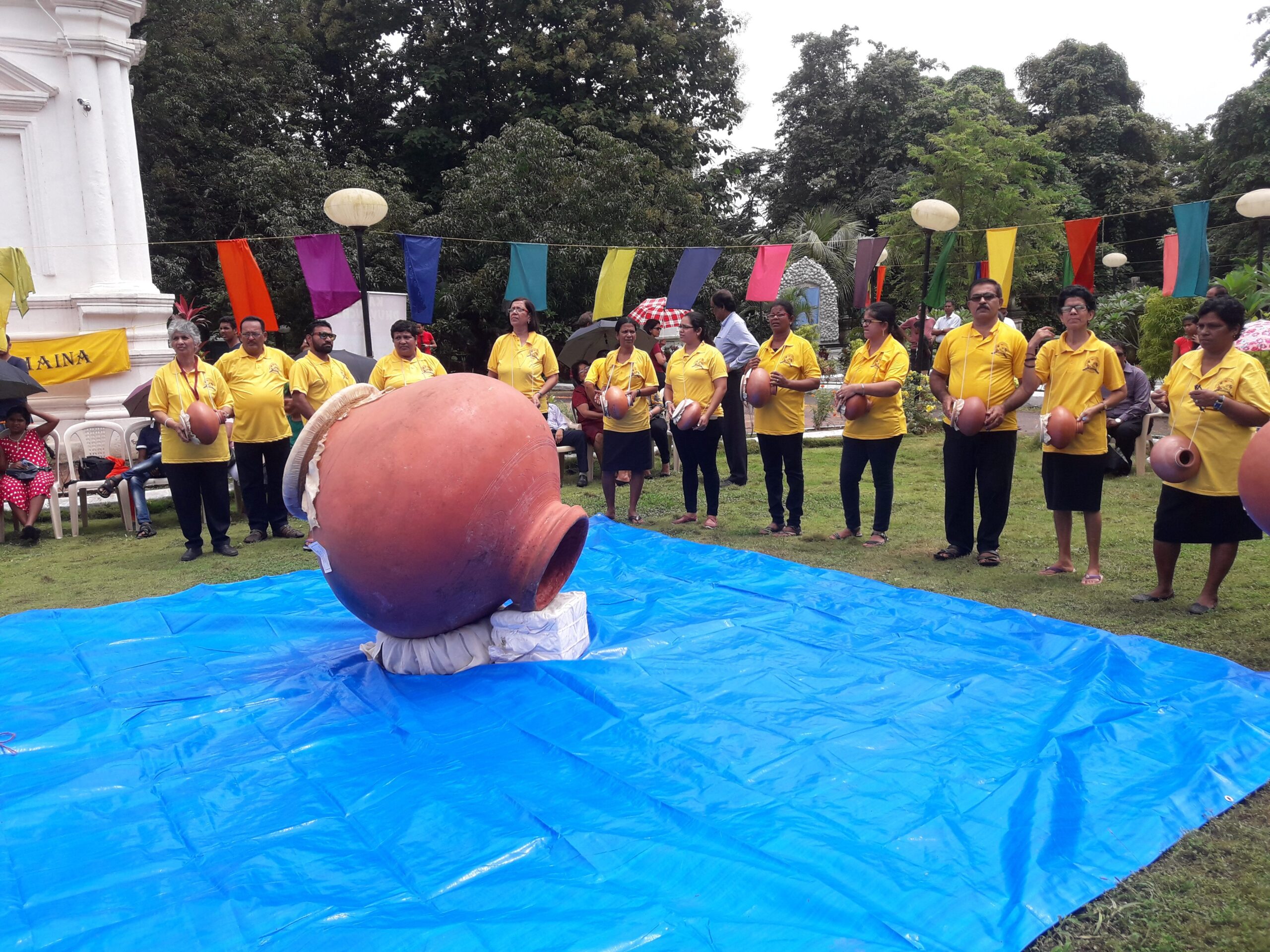Goa’s oldest percussion instrument, the Ghumot lends charm to classical and folk music. No ‘Mando’ or ‘Dulpod’ (Folksongs), Ghodde Modni, Fugdi, Dhalo or Dhekni (folk dances)are complete without it.

Ghumot – a membranophone type percussion instrument common to the western states of India, like Karnataka, Goa and Maharashtra is used largely in traditional and folk music. It is a baked earthen pot with circular openings on either side of the cavity. Animal skin is stretched over the larger opening and tied with rope. Traditionally skin from the Monitor Lizard is used. Goatskin is used as an alternative. The instrument is played with one hand striking the membrane and the other hand opening and closing the hole at the other end. The other hand controls the size of the resonating column; opening the cavity lets it interact with the air on the outside.

This instrument has an endemic status on the verge of extinction with no scientific documentation available for posterity.
At the recently held ‘Patoienchem Fest’ (Pancake Fest) in August 2018, Goan historian Prajal Sakhardande was heard declaring the Ghumot the ‘State Instrument of Goa’. Many noted personalities like our ‘Goenche Festamkar’ Marius Fernandes, Felly Gomes, O’Luv etc. present on the dais, couldn’t have agreed more. Despite the fact that a decision from the Government is awaited.

Ghumtakars (Ghumot makers) are highly skilled artisans. Right from moulding the mud pots to fixing the moulded rims and attaching the skins to the mouth. All this to get the required acoustics and resonance. The pot and rims are moulded by two different artisans. While the skin is fixed by a third. Earlier, the skin of the Monitor Lizard was used to cover the mouth. Today, with a ban on poaching of wild animals, goat’s skin is used.


Why did they feel the need to declare the Ghumot as ‘State Instrument’ of Goa?
According to Marius Fernandes, there are only three ‘Ghumtakars’ (Ghumot makers) left in Goa. All three are quite advanced in age. Their offspring have shown no interest in the occupation. So the art if not preserved will be lost forever.
We hope the Government takes immediate steps to declare the Ghumot as the State Musical Instrument to preserve and promote the dying art for posterity.


